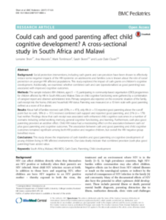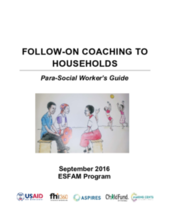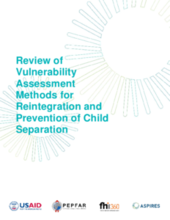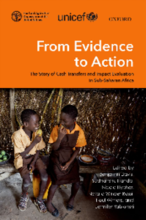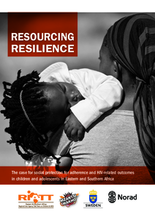Displaying 101 - 110 of 271
This study describes the impact of cash grants and parenting quality on 854 children aged 5–15 (South African and Malawi) on educational outcomes including enrolment, regular attendance, correct class for age and school progress (controlling for cognitive performance).
This brief summarises key findings of a qualitative study of the family strengthening approach of the Isibindi model.
This study explored the impact of cash grants on children’s cognitive development. Additionally, the authors examined whether combined cash and care (operationalised as good parenting) was associated with improved cognitive outcomes.
In this Innocenti Podcast, Tia Palermo discusses The Transfer Project, a government run large-scale social cash transfer program in Sub-Saharan Africa.
This study examines the causal role that the source of income plays in reunification.
This Coaching Guide supports Para-Social Workers (PSWs) to provide households with targeted coaching to increase the adoption of new skills, practices, and knowledge key to child and family wellbeing.
In this report, which has been prepared to inform planning in the USAID-funded ASPIRES project, the authors present a review of some of the existing tools used to assess vulnerability to either separation or negative child well-being outcomes with attention to economic security for the purposes of targeting households for program participation and matching them to appropriate interventions.
This book published jointly by FAO, UNICEF, and Oxford University Press presents the findings from evaluations of the Transfer Project, a cash transfer project undertaken in the following sub-Saharan African countries: Ethiopia, Ghana, Kenya, Lesotho, Malawi, South Africa, Zambia, and Zimbabwe. It concludes that cash transfers are becoming a key means for social protection in developing countries.
This report includes a literature, evidentiary, and policy review of social protection in the Eastern and Southern African Region.
This blog post by UNICEF describes how the Disability Rights Initiative-Cambodia, a joint Australian Government-United Nations program to improve quality of life for children with disability and their families, is having an impact for one family in Cambodia.

